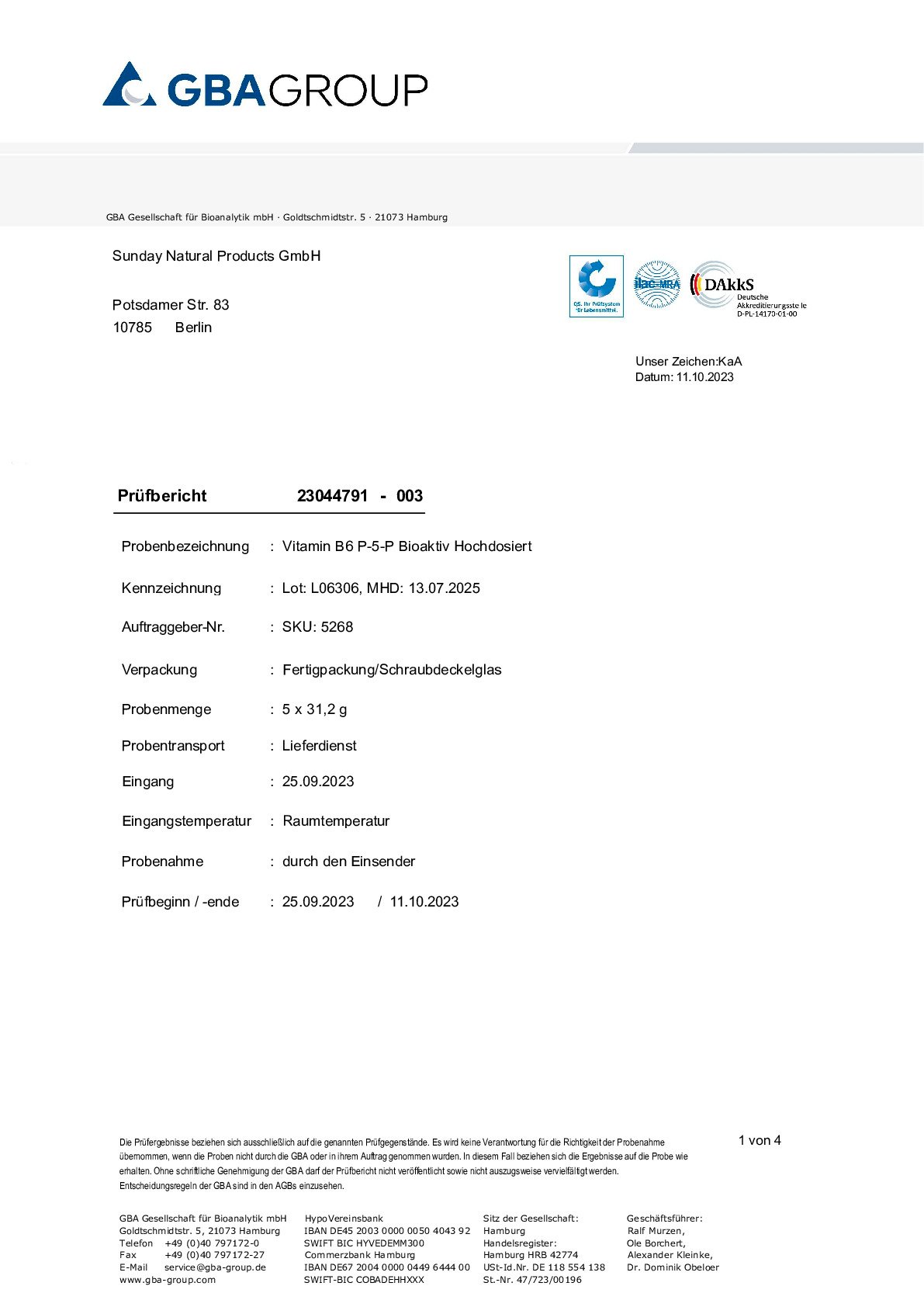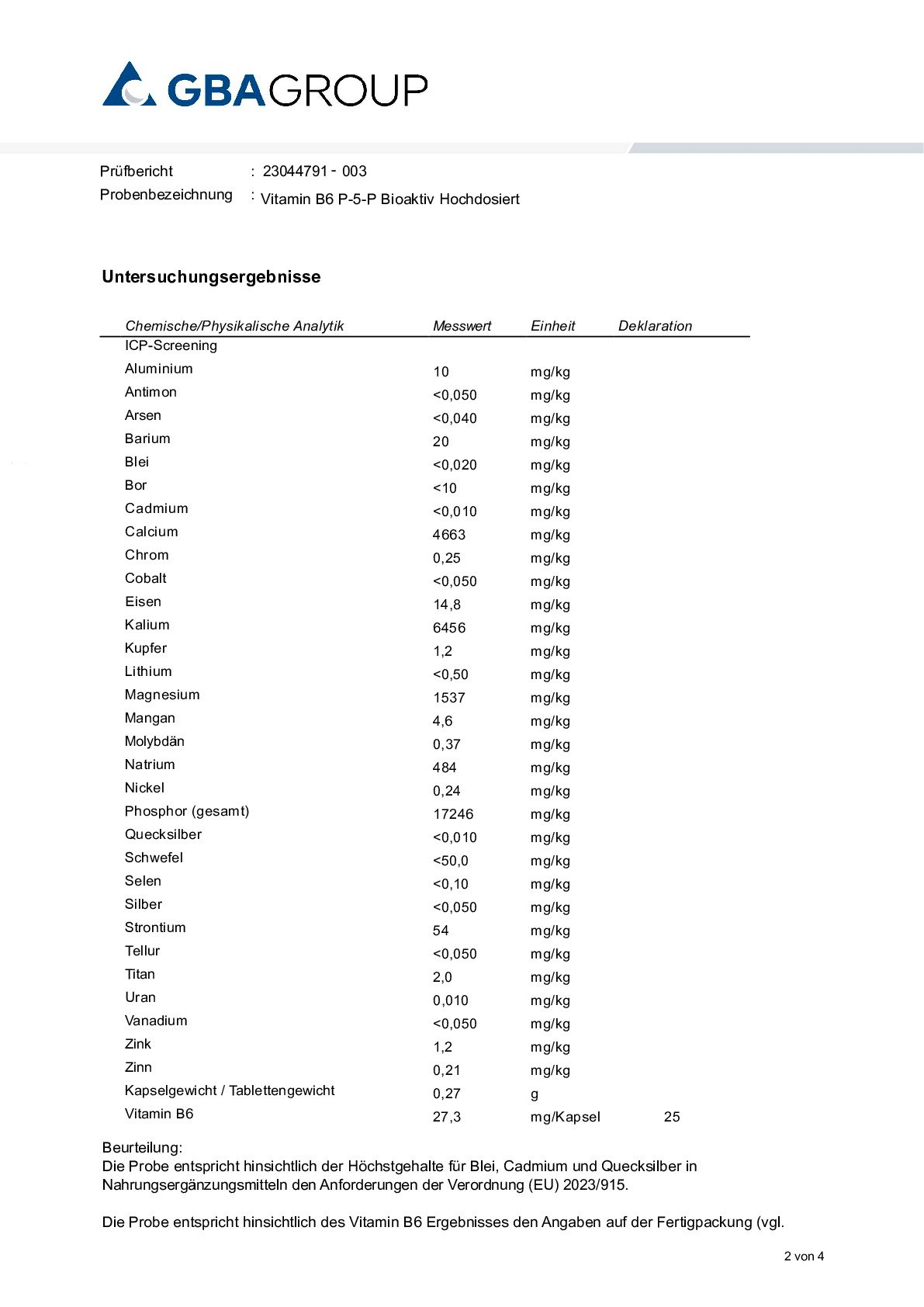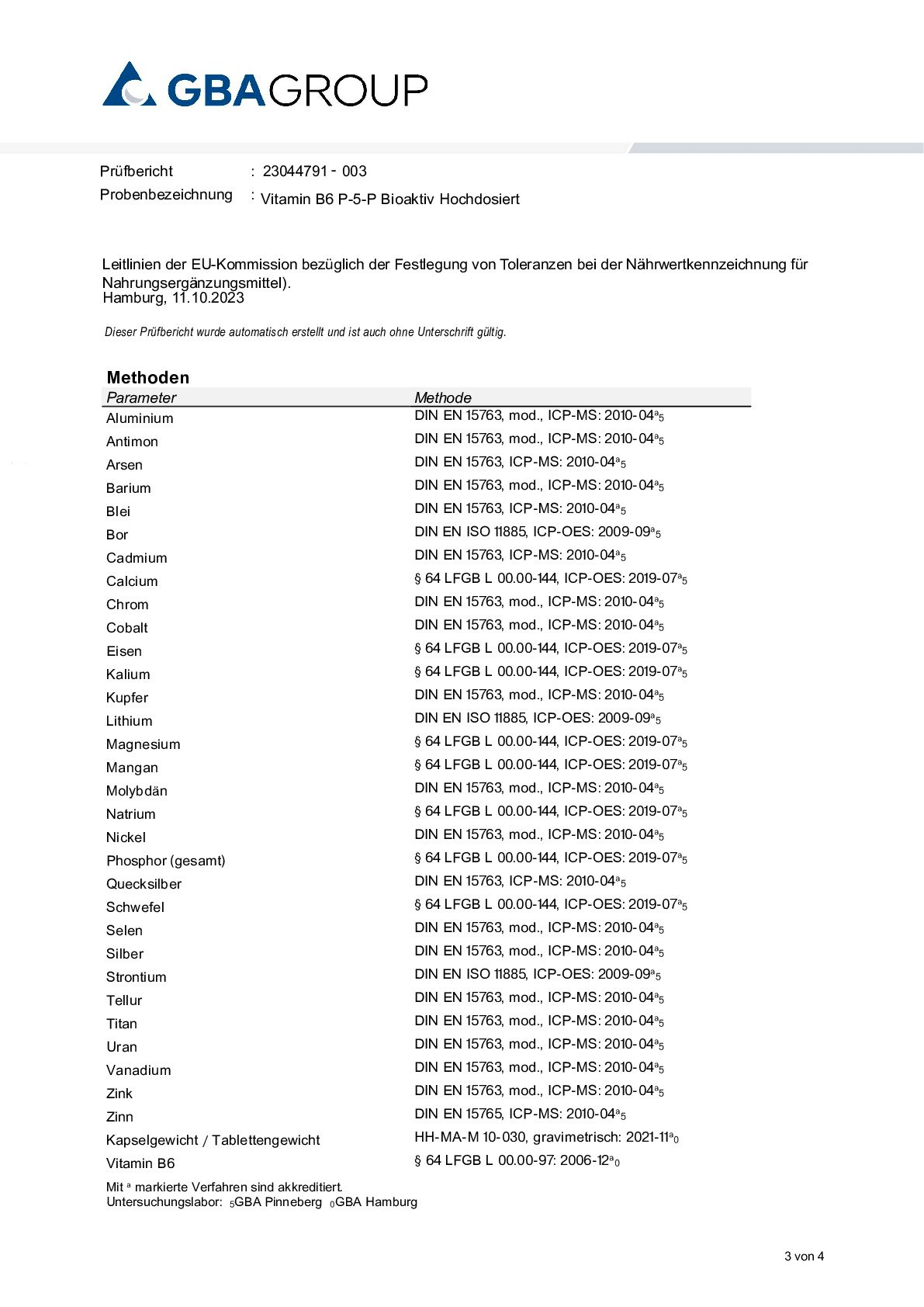Vitamin B6 (Pyridoxine)
Vitamin B6 (pyridoxine) is the precursor of pyridoxal 5'-phosphate (P5P), one of the most important coenzymes in humans. As an active coenzyme form of vitamin B6, P5P enables about 100 enzymatic reactions and plays a central role in the metabolism of amino acids.
Vitamin B6 supports the breakdown of homocysteine and contributes to the normal synthesis of cysteine, an amino acid which serves as a central building block of important compounds such as coenzyme A, creatine, glutathione and taurine.
Vitamin B6 is also involved in the synthesis of the neurotransmitters serotonin, noradrenaline, dopamine and GABA. In addition, by modulating the effect of testosterone and oestrogen, vitamin B6 makes an important contribution to normal mental function and a healthy nervous system through these steroid hormones.
The influence of vitamin B6 in the nervous system extends to the synthesis of important components of the cell membrane, including myelin, a protective nerve layer, as well as phospholipids and sphingolipids.
Vitamin B6 is also important for energy metabolism, as it is involved in the metabolism of protein and glycogen. Glycogen is a carbohydrate that serves as an energy store in cells.
Directly Bioactive Vitamin B6 in the Form of P5P
In the form of pyridoxine, vitamin B6 does not have any direct biological activity. It must first be converted by the body into bioactive pyridoxal 5'-phosphate (P5P), a coenzyme form of vitamin B6, in order to be metabolically active.
According to the European Food Safety Authority (EFSA):
Vitamin B6 contributes to:
- Normal energy metabolism
- Normal protein and glycogen metabolism
- Normal functioning of the nervous system
- Normal immune system functioning
- Normal mental function
- Hormonal activity regulation
- Reducing tiredness and fatigue
- Normal red blood cell formation
- Normal homocysteine metabolism
- Normal cysteine synthesis

































